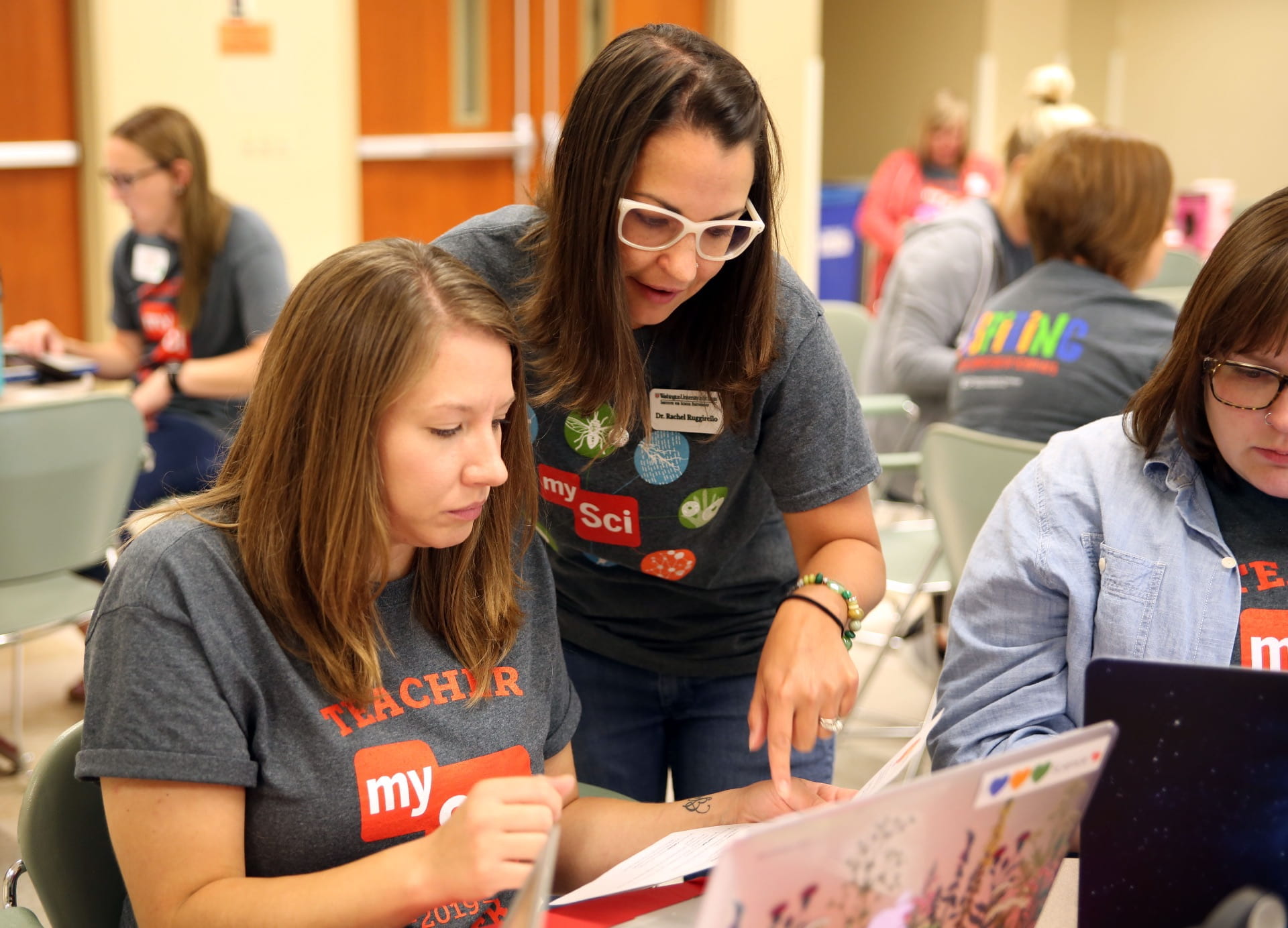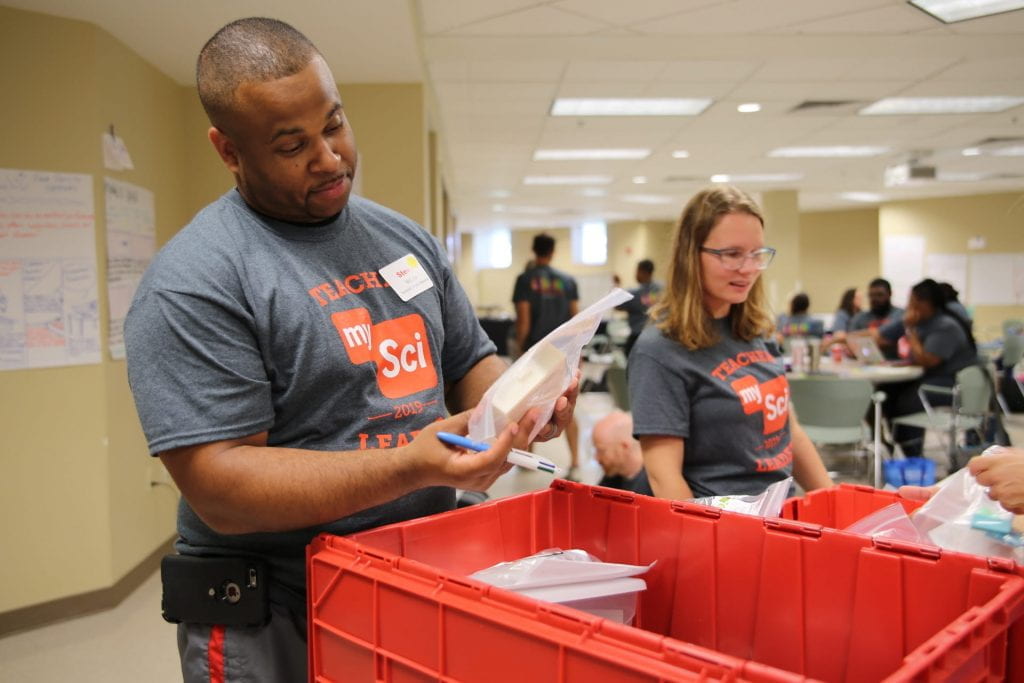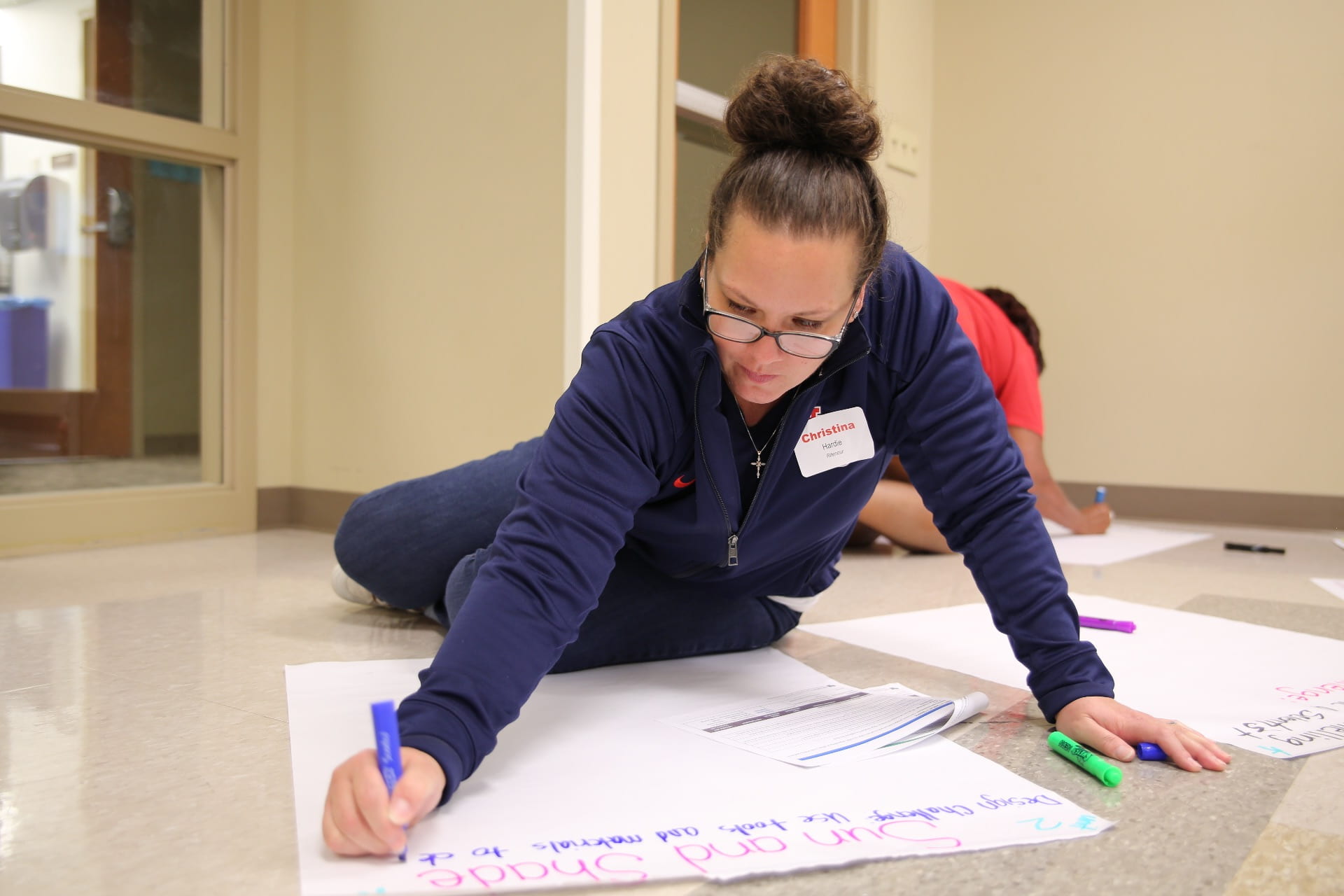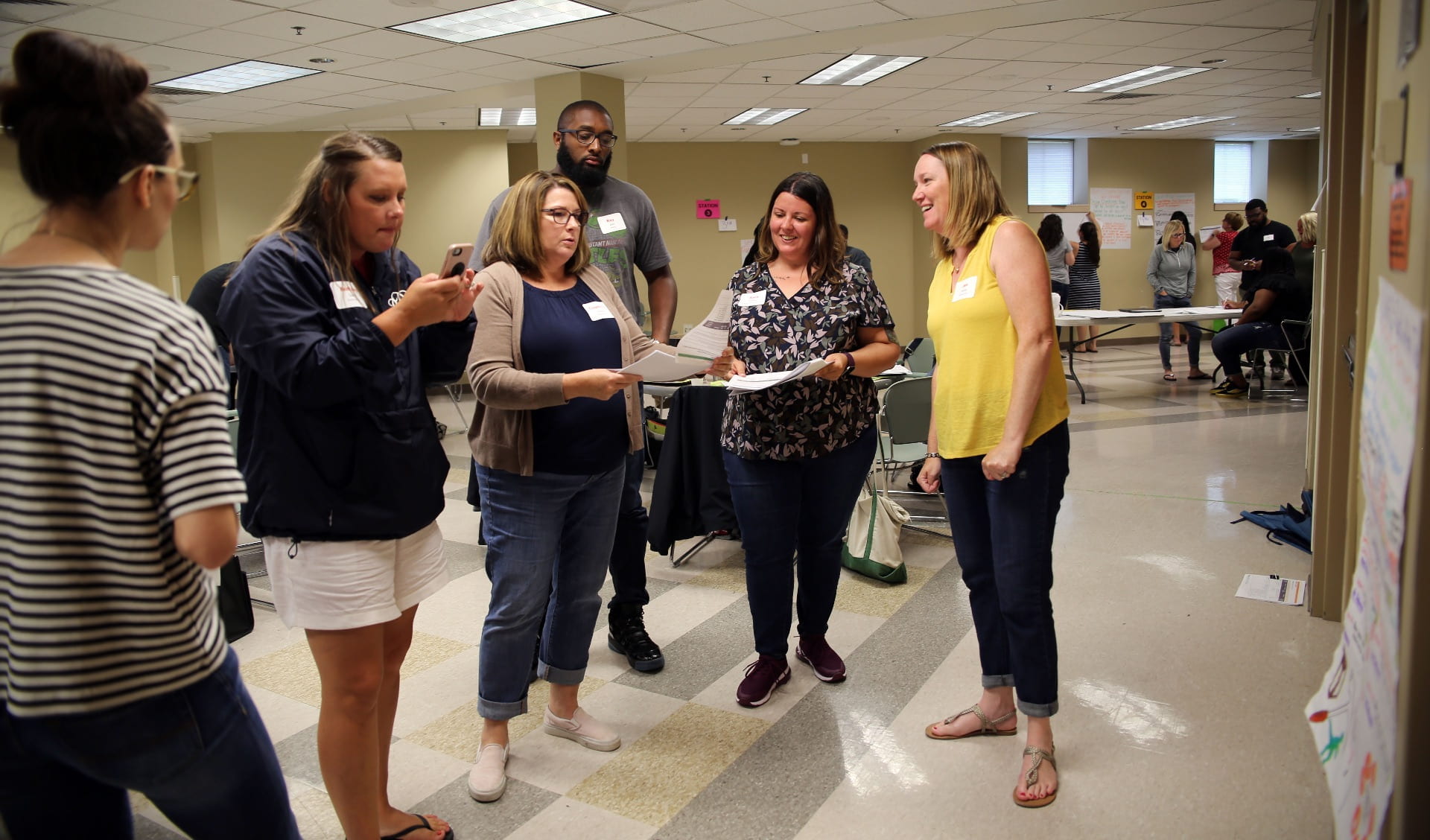As the Institute for School Partnership’s innovative mySci curriculum program nears the 15 year mark, the ISP has started developing and supporting distinct leadership pathways for its mySci educators.
Currently, districts and schools who partner with mySci are offered an ample array of professional learning opportunities. They vary from foundational learning opportunities to deeper learning of science instructional practices. This summer, mySci rolled out selective leadership institutes for teachers to become building-level leaders or district-level leaders. These opportunities are critical because teacher leaders are integral to the success and sustainability of curriculum initiatives, and therefore are integral to student learning and achievement in science. Teacher leaders are classroom teachers who are also instructional leaders, modeling effective science instruction, collaborating with others, providing resources, and advocating in service of effective science instruction.
The institutes were held over a one-week period in late July. The mySci building leader program targeted new mySci partners and focused on empowering teachers to support other teachers in their building in implementing mySci. The mySci district leadership program targeted returning mySci partners and focused on preparing educators to become qualified facilitators of mySci professional development to teachers in their districts.
Gaining knowledge and confidence
The scene is one of collaborative learning. Teachers are huddled together at tables, in hallways and yet others are sprawled on the floor with markers in hands.
Diane Dressel, a kindergarten teacher at Pond Elementary in the Rockwood Wood School District and Christina Hardie, a first-grade teacher at Wyland Elementary School in the Ritenour School District are stretched out on the floor doing high level unit and module overviews of what they and other teachers will be teaching.
“The best seat in the house,” Dressel said. “I love working on the floor!”
Dressel and Hardie joined about 40 other educators from Rockwood, Lindbergh, Ritenour and Normandy Schools Collaborative who took part in the two-day mySci Building Leaders Institute on the campus of Washington University. Sessions were led by ISP Instructional Specialist Melanie Turnage, Teaching Facilitator Lauren Church, Lead Instructional Specialist Heather Milo and Teaching Facilitator V. Barbara Pener.
Tarren Fritz, a first-grade teacher at Dressel Elementary in the Lindbergh School District, piloted mySci last year and was very impressed with the immersive two-day building leaders institute.
“It gave us an opportunity to dive deep into the materials and to gain the knowledge and confidence to help others,” she said. For her, that means that in addition to learning the topics, units and needed materials for her grade level, she familiarized herself with the needs of all the other grade levels.
Fritz had high praise for the mySci institute instructors.
“They’re amazing! They’re accessible and they take their time to answer questions, even virtually throughout the year they would get right back to me. And the fact that they are right here in St. Louis is amazing,” she said.
For Joe Butler, a fifth-grade teacher at Marion Elementary in the Ritenour School District, the two-day institute served as a great resource repository. He said it was beneficial to sit together with teachers from different districts and who have different demographics.
“It was helpful to meet with other teachers and discuss their take on certain things, share websites and information that I had no idea about. Seeing how they implemented the same curriculum but might have done something different, and all of us coming together as educators and sharing those best practices makes us all better teachers,” he said.
In addition to the building leadership institute that was held on campus, Turnage and Church led a district specific two-day building leadership session for teachers in the Fort Zumwalt School District. About 40 teachers attended that workshop.
Developing teacher leaders

Advocate, model, collaborate, and share. That seems like a tall order for just one person, but the participants of the two-day mySci District Leadership institute at WashU are up for the challenge. Twenty-four educators from 12 area schools and school districts attended the institute to ready themselves to support mySci teachers in their building and district in teaching science.
ISP Associate Director Rachel Ruggirello and ISP Lead Instructional Specialists Jeanne Norris and Heather Milo led the two-day district leadership institute. The goals of the institute included building confidence in science teaching and leadership, and providing teachers with skills and tools to be a leader in their district.
“The ISP believes that the best way to promote strong educational outcomes is to empower teachers and give them opportunities to lead and grow in their practice,” Ruggirello said.
She added that it’s important to develop leaders in districts where mySci is being taught, because teachers benefit from having an in-house, go-to person that is working to improve and support their science teaching and learning. In addition, research suggests that in districts that prioritize teacher leadership and build an infrastructure to cultivate it, teachers are more likely to grow in ways that translate into better student learning. The mySci staff feel uniquely positioned to support these efforts with their district partners.
Attendees were veteran mySci teachers. They participated in deep dives related to science content and pedagogy. They analyzed successes and challenges they face in their classrooms and districts, brainstormed how they might improve science teaching and learning in their classroom or school, and developed plans for how they will share this information with their colleagues to spread best practices. Participants felt inspired, energized, and equipped at the conclusion of the district leadership institute.
“Everything was very helpful in preparing us to be teacher leaders,” said Denise Pranger, an instructional coach from Confluence Academies.
Many attendees especially found the Plan-Do-Study-Act (PSDA) session focused on problem-solving to be beneficial. In this portion of the institute, teacher leaders looked at case studies of mySci teachers using PDSA to improve student learning outcomes, then developed their own PDSA plan based on a problem of practice in their classroom or district.
“The PDSA planning time was amazing. My team and I were able to work through a plan for this year to help build capacity and confidence in all teachers in our district,” said Molly Osburg, a 5th/6th grade looping teacher at Maplewood Richmond Heights Elementary School.
Sarah Schmondelmeyer, also of Maplewood Richmond Heights, called the PSDA model “a game changer” for her school’s science curriculum team. She said it’ll be incredibly beneficial as they continue to meet the needs of teachers and students in their district.
mySci district leader participants will have quarterly follow-ups throughout the school year with a mySci representative to provide ongoing support as they implement leadership projects in their district. They will also submit a video of their classroom teaching, and present a summary of their leadership activities at a mySci District Leader Symposium at the end of the school year.
Through these different levels of leadership opportunities for science teachers, mySci hopes to further build capacity across the region for excellent science instruction, honor the expertise of teachers as leaders in science education, and foster opportunities for collaboration across mySci partner districts.


